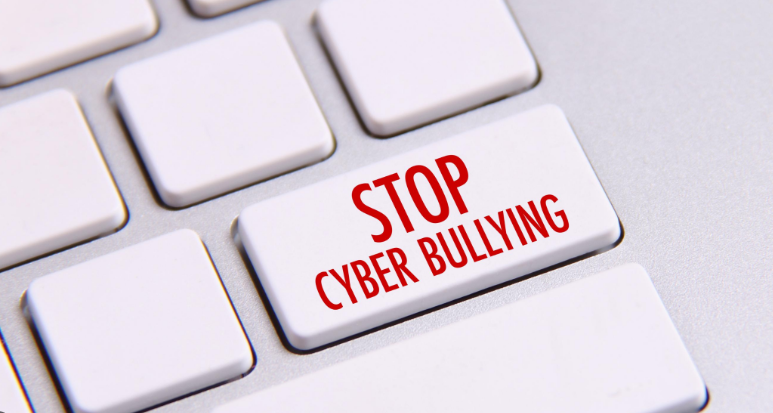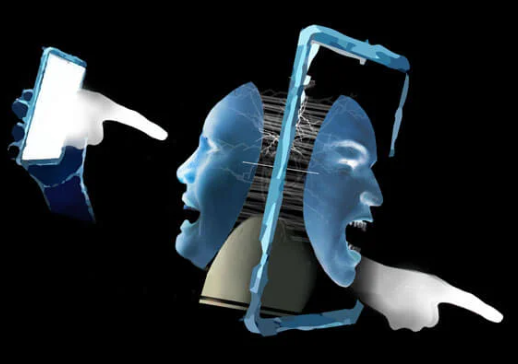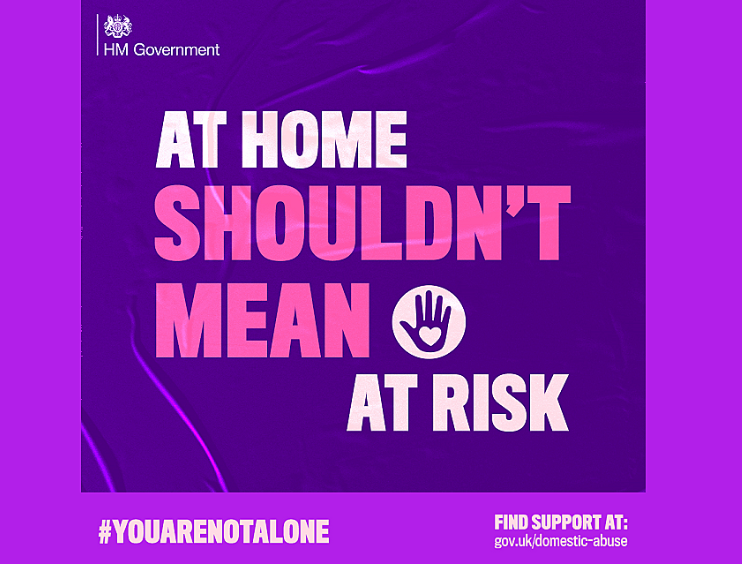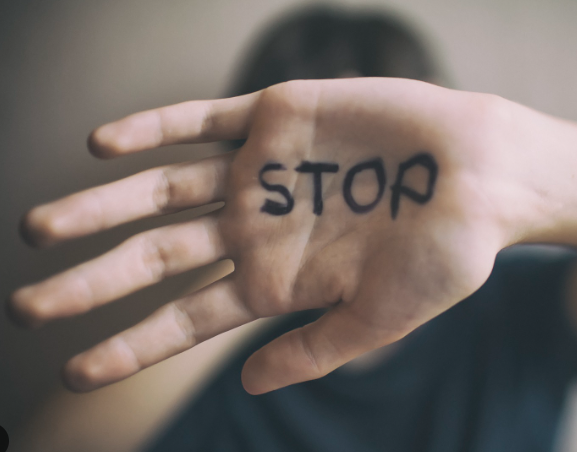Safeguarding Information
Sexting
Sexting or sharing nudes and/semi-nudes has become an all too common phenomenon amongst young people and carries significant risks, both in terms of their personal safety and well-being and in terms of breaking the law. Sexting has led directly to many instances of online harassment and, in some extreme cases, victims attempting or actually committing suicide, when sexting activities have backfired.
The following advice is taken from the nspcc.org.uk website:
Sexting is when someone shares sexual, naked or semi-naked images or videos of themselves or others, or sends sexually explicit messages. They can be sent using mobiles, tablets, smartphones, laptops – any device that allows you to share media and messages.
Sexting may also be called:
-
Trading nudes
-
Dirties
-
Pic for pic
Sexting can be seen as harmless, but creating or sharing explicit images of a child is illegal, even if the person doing it is a child.
A young person is breaking the law if they:
-
take an explicit photo or video of themselves or a friend
-
share an explicit image or video of a child, even if it's shared between children of the same age
-
possess, download or store an explicit image or video of a child, even if the child gave their permission for it to be created
There are many reasons why a young person may want to send a naked or semi-naked picture, video or message to someone else.
Here are the reasons why:
-
joining in because they think that 'everyone is doing it'
-
boosting their self-esteem
-
flirting with others and testing their sexual identity
-
exploring their sexual feelings
-
to get attention and connect with new people on social media
-
they may find it difficult to say no if somebody asks them for an explicit image, especially if the person asking is persistent
Anti-bullying
- Our Anti-Bullying Policy can be found on the policies page under ‘Education’.
If a parent/carer or student has concerns about bullying, this can be reported via our Holyhead Helpline or by contacting your child’s Head of Year.
Types of bullying :
-
Physical
-
Verbal
-
Social
-
Cyberbullying
-
Sexist
-
Homophobia
In accordance with gov.uk guidelines
-
There are age restrictions for different apps and social media, check that your child is compliant with these.
-
Ensure your child has appropriate privacy settings in place and that only approved friends can see what they share publicly and privately.
-
Check that your child knows how to report offensive comments or block people who upset them. Talk to them about behaviours and comments that are inappropriate and unacceptable, social media can provide an anonymous platform to voice or share things people wouldn't normally in face-to-face situations.
-
Consent should be sought before sharing photos or videos of others. Photos and videos should not reveal identities of themselves or others e.g. school uniform logo showing the school they attend.
-
It is important that you keep talking to your child about their use of social media and checking that they are staying safe. Encourage them to consider how they and others behave online and how they could deal with problem situations. Do they know that private messages and deleted messages can still be retrieved? How can they be a good friend online?
-
Ensure your child understands the importance of not accepting or befriending people they have never met before.
Cyberbullying
Holyhead School does not tolerate any form of bullying.


If you have been a victim of cyberbullying you should:
-
Keep a record as evidence. This can include 'screenshots'.
-
Talk to your parents/ carers who can help with the situation by removing or reporting any harmful material, and contact the police if there is any criminal activity involvement.
-
If this issue becomes a problem in school, report it to a member of staff who can record and follow up as required. The school provides education and advice about online safety through assemblies, PHSE lessons and bi-weekly drop in sessions with PCSO's are available to go to in school for further advice.
For further advice and guidance about online safety and social media use, see the following websites:
Child abuse linked to faith
Belief in supernatural forces, witchcraft and demonic possession has lead to several horrific cases of child abuse and child death as with the death of Victoria Climbie in 2000 and Kristy Bamu in 2010.
In circumstances of faith linked abuse, children thought to be harbouring some kind of evil spirit, or to be under some kind of spell are targeted as the source of problems such as ill health, misfortune or adult infertility.
Once a faith leader has identified the child in question as being a supernatural threat, they can be subjected to significant psychological or physical abuse by way of exorcism, leading in some cases to their death. Victims are often targeted either because they are in some way different, e.g. left-handed, epileptic, albino, or because they exhibit some form of abnormal, i.e. undesirable behaviour, which could be something as simple as persistent bed-wetting. Abuse can include sexual abuse, semi-strangulation, stabbing, beating, burning and application of highly irritant spices (chilli, etc) to the eyes or genitals.
The Government has published a number of documents on the gov.uk website, which is aimed at anyone who works with children who believe that a child in their charge is being subject to faith-linked abuse.
Child Sexual Exploitation
Many things can lead to Child Sexual Exploitation
Young people may think they are in a healthy relationship, they might be taken to clubs, hotels or parties, or given drugs and alcohol by people whom they trust. Young people are often led into situations where CSE can take place by friends of their own age or by relatives.
It is quite normal for victims not to realise they are at risk, because the people exploiting them are very well practised in enticing them into situations where sexual exploitation can take place; often building trust over a long period in order to achieve their eventual goal. Abusers understand how to play upon young peoples' rebellious nature, sense of adventure and naivety by taking them to places that are normally off limits or by giving presents that are normally beyond the young person's reach.
Extract from See me-Hear me website -
CSE is when a young person is coerced or forced to take part in sexual activity in return for some kind of payment, such as drugs, money, gifts or even protection and affection.
This sexual activity does not have to be in person, it could be via technology in the form of images or videos.
Young people do not give consent to being sexually exploited –it is a form of sexual abuse.
There are many reasons why young people may not tell anyone they are being sexually exploited:
-
They often do not recognise themselves as victims because of the grooming and manipulation they have experienced.
-
They are often threatened with violence or physically hurt to maintain their silence
-
They are worried that they won't be believed, or don't know how to start to talk about what is happening to them.
To find out more about Child Sexual Exploitation, please visit the link below:
If you feel that either yourself or someone you know is being abused in this way, it is vital that you report this. The following page contains a useful list of people and organisations that you can contact:
Child Trafficking
The United Nations defines human trafficking as the recruitment, transportation, transfer, harbouring, or receipt of persons by improper means (such as force, abduction, fraud, or coercion) for an improper purpose including forced labor or sexual exploitation. While high profile cases of trafficking occasionally appear in national news reports, it is believed that these represent only a tiny proportion of occurrences and that human trafficking and slavery are happening just below the surface of our society on a much larger scale. Victims are often so terrified by fear of retribution, or so broken by their experience, that they are unable to escape their enslavers even when opportunities arise. This means that victims frequently appear to enjoy day-to-day freedoms, which mask their true situation.
Extract from the National Crime Agency website -
There are several broad categories of exploitation linked to human trafficking, including:
-
Sexual exploitation
-
Forced labour
-
Domestic servitude
-
Organ harvesting
-
Child related crimes such as child sexual exploitation, forced begging, illegal drug cultivation, organised theft, related benefit frauds etc
-
Forced marriage and illegal adoption (if other constituent elements are present)
Report crimes of modern slavery -
In the first instance the point of contact for all modern slavery crimes should be the local police force. If you have information about modern slavery crimes – those who are committing such crimes or where victims are at risk that requires an immediate response dial 999.
If you hold information that could lead to the identification, discovery and recovery of victims in the UK, you can contact the Modern Slavery Helpline 08000 121 700.
For more information visit:
Alternatively you can make calls anonymously to Crimestoppers on 0800 555 111.
Domestic abuse
Domestic Abuse is described by the NSPCC as follows:
Domestic abuse is any type of controlling, bullying, threatening or violent behaviour between people in a relationship. But it isn't just physical violence – domestic abuse includes emotional, physical, sexual, financial or psychological abuse.
- It can happen in any relationship, and ev
 en after the relationship has ended. Both men and women can be abused or abusers.
en after the relationship has ended. Both men and women can be abused or abusers. - Domestic abuse can seriously harm children and young people. Witnessing domestic abuse is child abuse, and teenagers can suffer domestic abuse in their relationships.
- Domestic abuse can have long-lasting effects on children who live in a household where it is occurring. Problems can include aggressive or anti-social behaviour, withdrawal, depression, anxiety and underachievement, all of which are damaging to a child's development.
If you are concerned about domestic abuse, you can contact Women’s Aid or the National Domestic Violence Helpline.
Female Genital Mutilation (FGM)
Female Genital Mutilation – also known as FGM, female circumcision, cutting or sunna – involves the removal of a girl's external genitalia, particularly the clitoris.
More about FGM
FGM is practiced within some cultures, as a method of controlling women's sexuality and is seen as a way of ensuring virginity prior to marriage. Because of the circumstances in which FGM is often carried out, i.e. by unqualified practitioners, with inadequately sterilised equipment and with unsuitable aftercare, it frequently leads to infection and because of this can sometimes lead to death. FGM invariably results in life long suffering from pain, discomfort, menstrual problems and emotional scarring for the victim, while also denying them normally accepted enjoyment of sex.
FGM is usually carried out upon children who are too young to understand the consequences of FGM and are unable to offer any realistic resistance to parents, community or religious leaders who promote the practice. For these reasons: Under UK law FGM is regarded as abuse and is treated as a criminal offence! Unfortunately, FGM is usually carried out either in extreme secrecy within the UK, or upon victims who are taken abroad to be cut, meaning that cases of FGM are very difficult to identify.
If you want to know more about FGM or if you suspect that someone you know may have been or is likely to become a victim of FGM, please visit the websites below for further information about what to do:
Alternatively call the NSPCC on 0800 028 3550
Honour Based Violence
What is Honour based abuse?
Honour Based Abuse (often referred to as 'HBV' – 'Honour Based Violence') is defined as: any crime or incident, which has or may have been committed to protect or defend the honour of a family and/or community.
The United Nations estimates that around 5000 women die each year as a result of Honour Based Violence. HBV, along with other forms of honour based abuse, such as domestic incarceration or harassment, is carried out against women in order to maintain men's power and to deny women their basic human rights of making decisions about their identity, sexuality and relationships. HBV is often committed by family members or acquaintances of a victim, under the claim that the victim has brought shame to the family or community, by defying the traditional values and traditions of their culture by, for example:
Forming a relationship with someone from a different culture, religion or social status, wanting to avoid a forced marriage or Indulging in activities or fashions that aren't considered acceptable within a given culture
HBV is frequently connected to forced marriage. However, the terms forced marriage and arranged marriage are often confused. In a forced marriage, at least one party does not give their consent and some element of duress, either physical, emotional or psychological, is involved. In an arranged marriage, both partners take a significant role in the proceedings and either party reserves the right to withdraw at any stage. There is little or no basis in any religion for forced marriage. However, confused or deliberately convoluted notions of religion and culture are often used to justify the practice.
The Honour Based Violence Awareness Network contains a significant amount of information on HBV:
ForcedMarriage.net gives easy to understand advice regarding forced marriage:
Prevent
The Prevent duty is the duty in the Counter-Terrorism and Security Act 2015 on specified authorities, in the exercise of their functions, to have due regard to the need to prevent people from being drawn into terrorism. Channel is a programme which focusses on providing support at an early stage to people who are identified as being vulnerable to being drawn into terrorism.
The programme uses a multi-agency approach to protect vulnerable people by:
-
Identifying individuals at risk
-
Assessing the nature and extent of that risk
-
Developing the most appropriate support plan for the individuals concerned
The following HM Government documents give guidance on both Prevent and Channel:
Teenage relationship abuse
Sadly, many relationships that begin well can quickly become abusive when one partner starts to impose their will on the other. This can result in actions such as physical violence, verbal abuse, online abuse, attempting to impose control over the other partner's life, or pressure to have sex. Unfortunately, many young people, particularly those who are starting out in relationships for the first time, aren't sure what to expect from a healthy relationship. Others may have grown up in a home where an abusive relationship exists between parents, which is then accepted as normal.


The following documents give some useful advice on how to recognise if you or someone you know are in an abusive relationship and what to do about it:
Children with a parent in jail
Children with a parent in jail can experience a range of negative effects, including:
- Isolation: Children may feel isolated and ashamed, and may be afraid to talk about their situation.
- Behavioural changes: Children may revert to challenging behaviours, such as tantrums, bedwetting, or depression. They may also become fearful, anxious, or angry.
- Academic and behavioural issues: Children may have worse behaviour and achievement in school.
- Mental health problems: Children may be more likely to develop mental health problems later in life.
- Financial difficulties: Children may face greater financial difficulties.
- Perceived abandonment: Children may feel abandoned or rejected, especially if family members conceal their parent's whereabouts.
If you have a family member that you are concerned about, or are are a child with a parent in prison, there are support agencies that can support:

